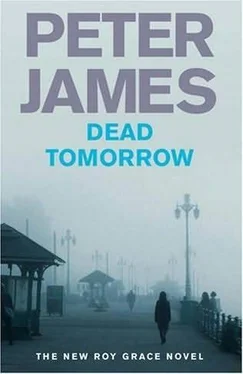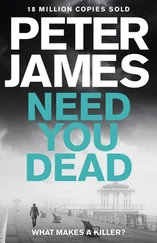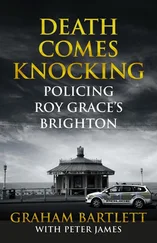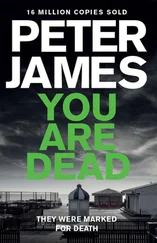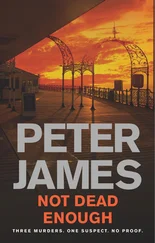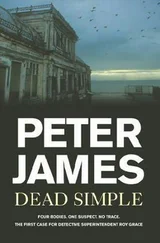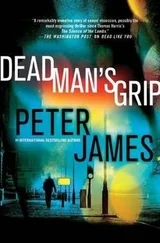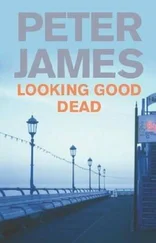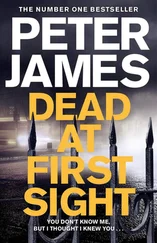The third was again from America, a particularly touching one, from the sister of a twenty-year-old girl in Madison, Wisconsin, who had received a kidney and said Lynn could call any time. The fourth was from a Swedish woman, in Stockholm, whose thirty-year-old husband had been provided with a new heart and lungs. The fifth was from a woman in Manchester, whose eighteen-year-old daughter had received a liver transplant this time last year. There were home and mobile numbers provided for her.
Lynn, still in her dressing gown, sipped her mug of tea. She had barely slept a wink all night, she had been so wired. Caitlin had come into her room at one stage, crying because she was in agony from where she had scratched the skin on her legs and arms raw. Then when she had settled her, Lynn had just lain awake, trying to think everything through.
The enormity of taking Luke’s money was weighing heavily. So was taking her mother’s nest egg. Taking the contribution from Mal worried her less; after all, Caitlin was his daughter too. But what if the transplant did not work? In the contract she had been through with Frau Hartmann, which the woman had left here, failure of the transplanted liver was covered. In the event of failure or rejection within six months a further liver would be provided at no charge.
But there was still no damn guarantee the transplant would work.
And, assuming it did, there was the further problem of finding several thousand pounds a year to pay for the anti-rejection drugs, for life.
But, more to the point, there wasn’t an alternative. Except for the unthinkable.
What if Marlene Hartmann was a con woman? She would have handed over every penny she could cobble together in the world and still be nowhere. OK, the company checked out from the credit enquiries she had made, surreptitiously, from work yesterday, and now she had the references, which she would contact for sure. But all the same she was worried sick about taking the next step – to sign and fax the contract and transfer 50 per cent of the fee, 150,000 euros, to Munich.
Breakfast was on the television, with the sound turned down to silent. The host and the hostess were seated on a sofa, chatting and laughing with a guest, some beautiful young woman in her twenties she vaguely recognized but couldn’t place. She had dark hair and was similar in build to Caitlin. And suddenly she had an image of Caitlin sitting there on that sofa, chatting and laughing with those hosts. Telling them about how she nearly died, but beat the system, yeaaaahhhhh!
Maybe Caitlin would become a huge star. It was possible. She was beautiful; people noticed her. She had personality. If she had her health back, she could be anything she wanted.
If.
Lynn glanced at her watch and did a quick calculation.
‘Wisconsin must be six or seven hours behind the UK, right?’
Luke nodded pensively. ‘Phoenix will be about the same.’
‘So it would be the middle of the night. I would particularly like to talk to the mother there – I’ll call her this afternoon.’
‘The one in Manchester has a daughter of a similar age. You should be able to get hold of her. I think you should kick off with her.’
Lynn looked at him and, through her tiredness and her frayed emotions, suddenly felt a deep affection for him.
‘Good thinking,’ she said, and dialled the woman’s home number. After six rings it went to voicemail. Then she tried the mobile.
Almost instantly there was a click, followed by a loud background roar, as if the woman was driving.
‘Hello?’ she said in a thick Mancunian accent.
Lynn introduced herself and thanked the woman for emailing her.
‘I’m just dropping the young ones off,’ she replied. ‘I’ll be home in twenty minutes. Can I call you back?’
‘Of course.’
‘And listen, love, don’t worry. Marlene Hartmann is a star. You can come up here and meet my Chelsey. She’ll chat to you, tell you the nightmare she went through with the National Health. I can show you the photos too. Twenty minutes all right for you, love?’
‘Absolutely fine, thank you!’ Lynn said.
She put the phone down with hope suddenly soaring in her heart.
As Glenn Branson drove along the perimeter road of Shoreham Airport, the strong wind buffeted the small Hyundai. He passed a cluster of parked helicopters, then glanced at a small, twin-engined plane that was coming in to land on the grass runway. He turned right, beyond the end of the hangars, and drove up to the converted warehouse, inside a mesh-fenced compound, that housed the Specialist Search Unit. The car clock read 12.31 p.m.
A few minutes later he was in the cluttered conference room, which doubled as the canteen and shared communal office, with a mug of coffee beside him, carefully spreading out the photocopy of an Admiralty chart, which Ray Packham had helped him to prepare, on the large table.
There were charts on the walls, wooden shields, a whiteboard, some framed photos of the team, as well as a bravery award certificate. The view through the window was on to the car park and the featureless grey metal wall of the warehouse beyond. On the windowsill was a goldfish bowl, containing a solitary fish and a toy deep-sea diver.
Smurf, Jonah, Arf and WAFI were already seated. The young woman sergeant wore a black, zippered fleece, embroidered with the word police and the Sussex Police shield above it. The three men wore blue, short-sleeved shirts, with their numbers on the epaulettes.
Gonzo, also wearing a fleece, came in and handed Glenn Branson a stiff paper bag. ‘In case you need it.’
The other four grinned.
Glenn looked puzzled. ‘Need it for what?’
‘To throw up in,’ Gonzo said.
‘It’s quite rough outside!’ Jonah said.
‘Yeah, and this whole building moves a bit on a windy day,’ said WAFI, ‘so we thought – you know – bearing in mind last time you were with us…’
Tania Whitlock gave Glenn a sympathetic smile as her team ribbed him.
‘Yeah, very witty,’ he retorted.
‘Heard you applied for a transfer to this unit, Glenn,’ Arf said. ‘Cos you enjoyed being with us so much last time.’
‘ Mutiny on the Bounty springs to mind,’ Glenn said.
‘So, Glenn,’ Tania Whitlock said, ‘tell us what you have.’
The chart showed a section of coastline from Worthing to Seaford. There were three crude red ink rings drawn on it, marked A, B and C , with a sizeable space between each. A green dotted line plotted a course out to sea from the mouth of Shoreham Harbour, with a childlike drawing of a boat at the end of it, beside which someone had written Das Boot . There was also a large blue arc.
‘OK,’ Branson said. ‘The skipper of the Scoob-Eee, Jim Towers, had a mobile phone on the O2 network. These three red circles indicate the O2 base stations and masts covering this section of coast. The phone company has given us a plot, which is all marked on here, of base station signals received from Towers’s mobile phone on Friday evening, between 8.55 p.m., when it was noticed by a harbour pilot and by a shore boatman passing through the lock, and 10.08 p.m., when the last signal was received.’
‘Glenn, are these calls that Jim Towers made?’ Sergeant Whitlock asked.
‘No, Tania. When the phone is in standby mode, once every twenty minutes it sends out a signal to a base station, a bit like the way, when I was with you, you radioed the coastguard from time to time and gave him your position, yeah?’ he explained, pleased with his analogy. ‘It’s like checking in – calling home. It’s called, technically, a location update.’
They all nodded.
‘The signal gets picked up by the nearest base station – unless it’s busy, and then it gets passed to the next one. If there’s more than one base station in range, it could be picked up by two or even three.’
Читать дальше
